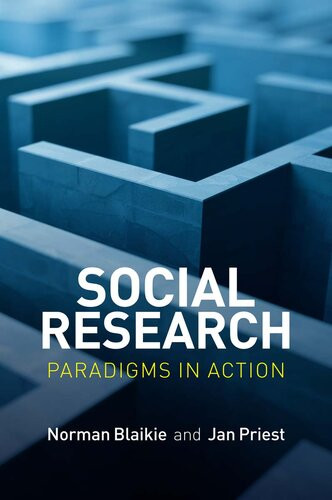

Most ebook files are in PDF format, so you can easily read them using various software such as Foxit Reader or directly on the Google Chrome browser.
Some ebook files are released by publishers in other formats such as .awz, .mobi, .epub, .fb2, etc. You may need to install specific software to read these formats on mobile/PC, such as Calibre.
Please read the tutorial at this link: https://ebookbell.com/faq
We offer FREE conversion to the popular formats you request; however, this may take some time. Therefore, right after payment, please email us, and we will try to provide the service as quickly as possible.
For some exceptional file formats or broken links (if any), please refrain from opening any disputes. Instead, email us first, and we will try to assist within a maximum of 6 hours.
EbookBell Team

4.3
88 reviewsThis unique book explains the central role that research paradigms play in the design and conduct of social research. The authors argue that social research should not just describe or confirm a social problem but should seek to find an explanation for it – and to do so requires research with 'eyes philosophically wide open'.
Important philosophical and practice elements of three widely recognized paradigms – Neo-Positive, Interpretive and Critical Realist – are carefully elaborated and their use in action illustrated with detailed examples. The authors show that the philosophical assumptions of a chosen paradigm must match those embedded in a characterization of a research problem and its context. This paradigm orientation is shown to be fundamental to appropriately framing a problem, formulating research questions, deciding on a logic of inquiry and selecting and using methods to investigate it.
Ultimately, an appropriate paradigm orientation to social research provides a dispassionate, rigorous and effective basis for the production of new social scientific knowledge. Following on from Blaikie's Approaches to Social Enquiry and Designing Social Research, this innovative book will be invaluable to upper-level and research students, their lecturers and supervisors, and researchers across the social sciences.